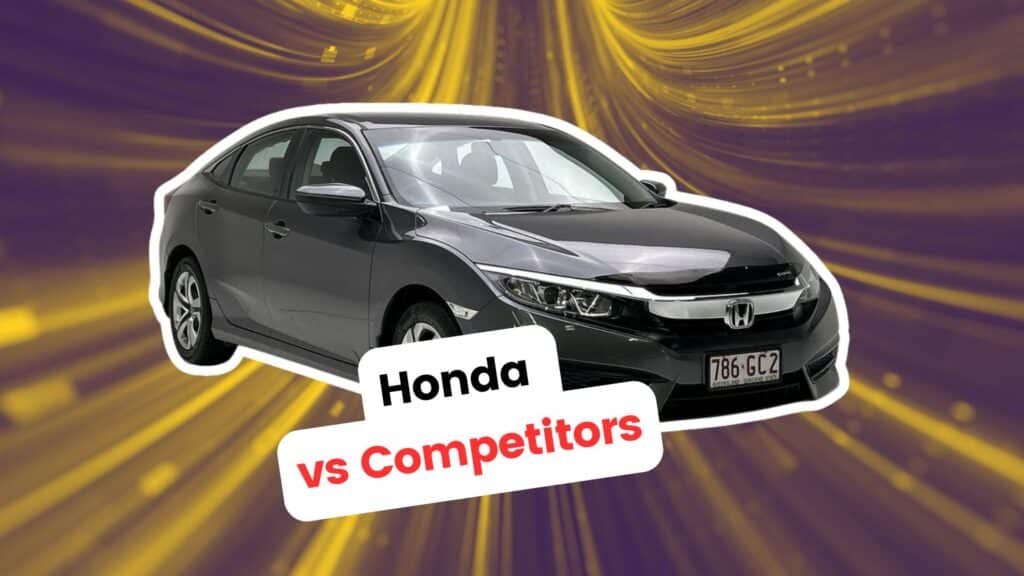Looking for a fun-to-drive and reliable car? Honda’s quick and lively vehicles have been catching the eye for years.
From lively small cars to smooth sedans, Honda offers an exciting range that goes toe-to-toe with top rivals.
But how do these cars compare to others on the road? This breakdown examines Honda’s quick vehicles side-by-side with other big names.
We’ll examine what makes Honda stand out, from how well it handles turns to its engines that save gas but still pack a punch.
Knowing how Honda compares is important if you love cars or want a more enjoyable ride to work.
Get set to learn why many drivers choose Honda when they want a reliable and thrilling car.
Honda’s Performance Metrics
Honda cars are known for their strong performance. In this section, we’ll look at how fast they go, how much fuel they use, and how they handle on the road.
We’ll compare Honda’s numbers to other car brands to see how they stack up.
1. Speed and Acceleration
Honda’s cars are known for their quick response on the road. Let’s examine their acceleration from 0 to 60 mph.
The Honda Civic, for example, can reach 60 mph in about 7.3 to 7.5 seconds. This is quicker than the Toyota Corolla, which takes 8.3 to 9 seconds to hit the same speed.
Honda keeps improving its engines. It uses smart tech to produce more power without using too much gas.
This means Honda cars can often beat others in their class when speeding up quickly.
2. Fuel Efficiency
Honda cars are great at saving gas. Many Honda models get top marks for using less fuel. For instance, the Honda Civic can go far on a single tank, often beating cars like the Ford Focus in miles per gallon.
Honda works hard to make cars that don’t guzzle gas. They use special engine designs and light materials to help their vehicles go further with less fuel. This means you can drive longer and spend less at the pump.
3. Handling and Driving Experience
Driving a Honda often feels smooth and easy. Cars like the Accord and Civic are known for being fun to steer and control. They respond well when you turn or brake, making the drive more enjoyable.
Compared to other cars, Hondas often come out on top for how they feel on the road.
Many drivers say Hondas feel more connected to the road than similar cars from other makers. This good handling makes Honda cars popular with people who like to drive.
Competitor Analysis
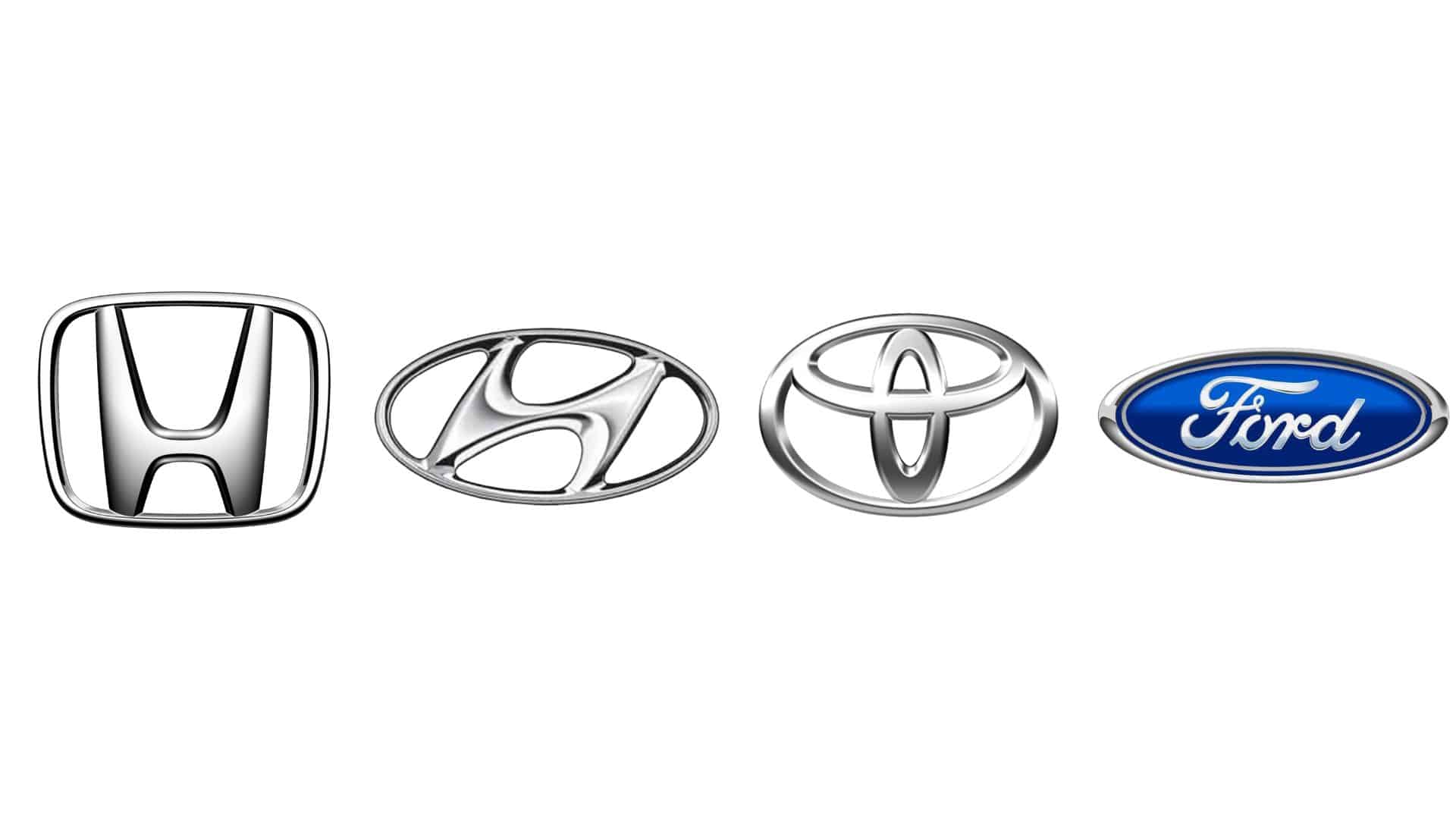
Honda isn’t the only car maker. Let’s compare it to big names like Toyota, Ford, and Hyundai.
We’ll examine each brand’s strengths and areas where Honda might have an advantage in performance and features.
1. Toyota
Toyota, a Japanese automaker known for reliability, has been Honda’s long-standing rival. Both brands offer similar vehicle types, but there are key differences in performance.
- Speed: Honda Civic (0-60 mph in 7.3-7.5 seconds) vs. Toyota Corolla (0-60 mph in 8.3-9 seconds)
- Fuel efficiency: The Honda Civic often beats the Corolla in miles per gallon
- Hybrids: The Honda Insight provides a more conventional driving feel compared to the Toyota Prius
- Handling: Honda generally offers more responsive steering and braking
2. Ford
Ford, an American automaker with a global presence, competes with Honda in various segments, particularly in compact and midsize cars. Here’s how they compare.
- Acceleration: The Honda Civic is typically quicker in 0-60 mph tests compared to the Ford Focus
- Fuel economy: The Honda Civic usually achieves better highway and city mpg than the Ford Focus
- Engine reliability: Honda engines tend to require fewer repairs over time
- Driving experience: Honda’s smooth handling often rates higher in driver reviews
3. Hyundai
Hyundai, a South Korean brand, has rapidly improved its offerings recently, becoming a strong competitor to Honda. Here’s how they stack up.
- Features: Hyundai often offers more features at a similar price point
- Performance: Honda Civic and Accord generally provide better handling and road feel
- Material quality: Honda typically uses higher-grade materials in their interiors
- Long-term durability: Honda vehicles tend to maintain their condition better over time
- Build quality: Honda’s focus on quality often results in fewer issues as the car ages
Key Performance Features
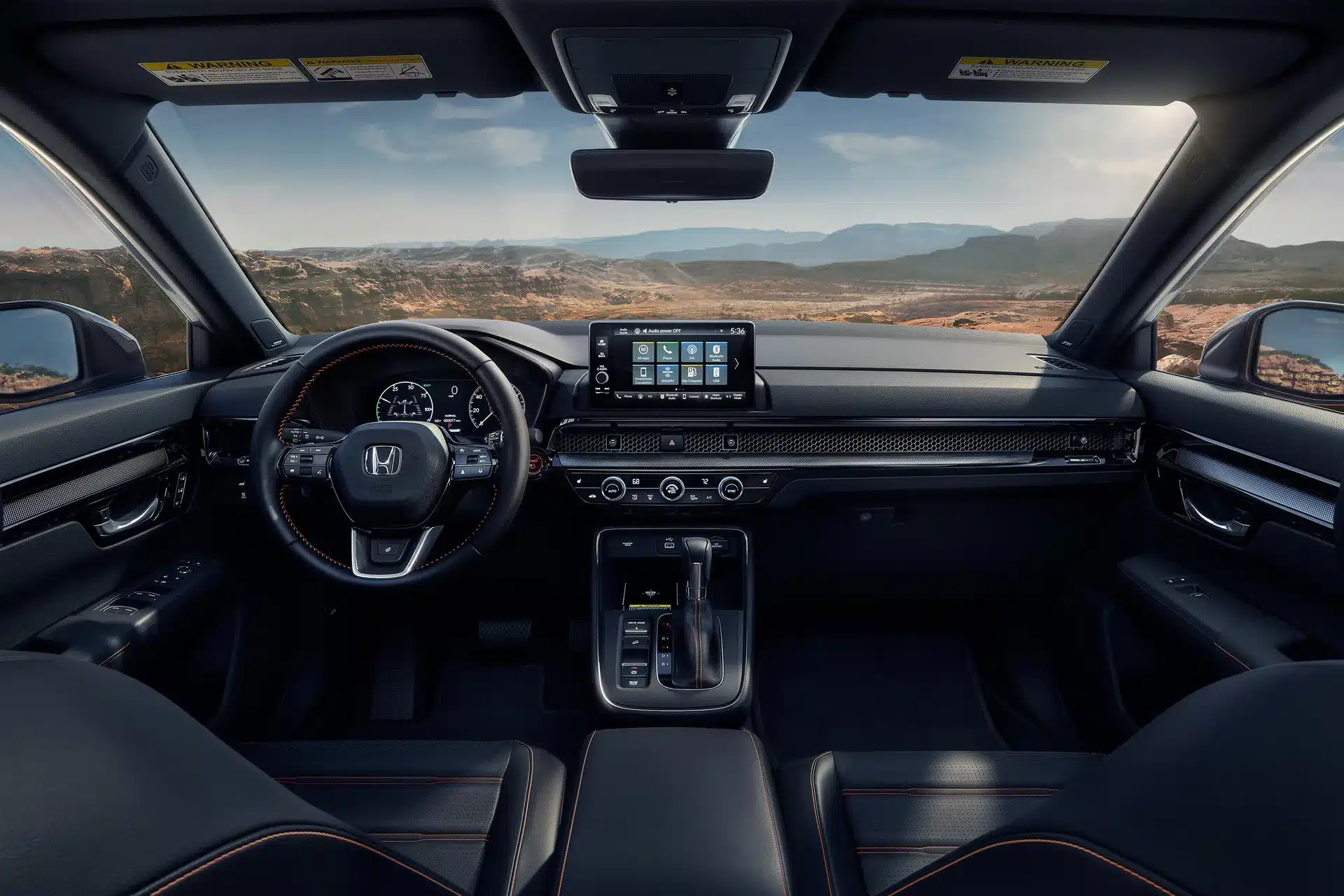
Honda has been at the forefront of adding smart tech to its cars. This not only makes them safer but also helps them run better. Let’s look at some key features.
1. Honda Sensing®
- This safety system helps drivers stay alert and avoid accidents
- It includes features like adaptive cruise control and lane-keeping assist
- These tools help make driving smoother and less tiring, which can improve overall performance
2. Performance-enhancing features
- Honda’s VTEC (Variable Valve Timing and Lift Electronic Control) engine technology helps cars use less fuel while still having good power
- Their CVT (Continuously Variable Transmission) makes gear shifts smooth, which helps with acceleration
- Many Honda models now have drive modes (like Eco and Sport) that let drivers choose between saving fuel or having more power
Competitors’ Technological Edge
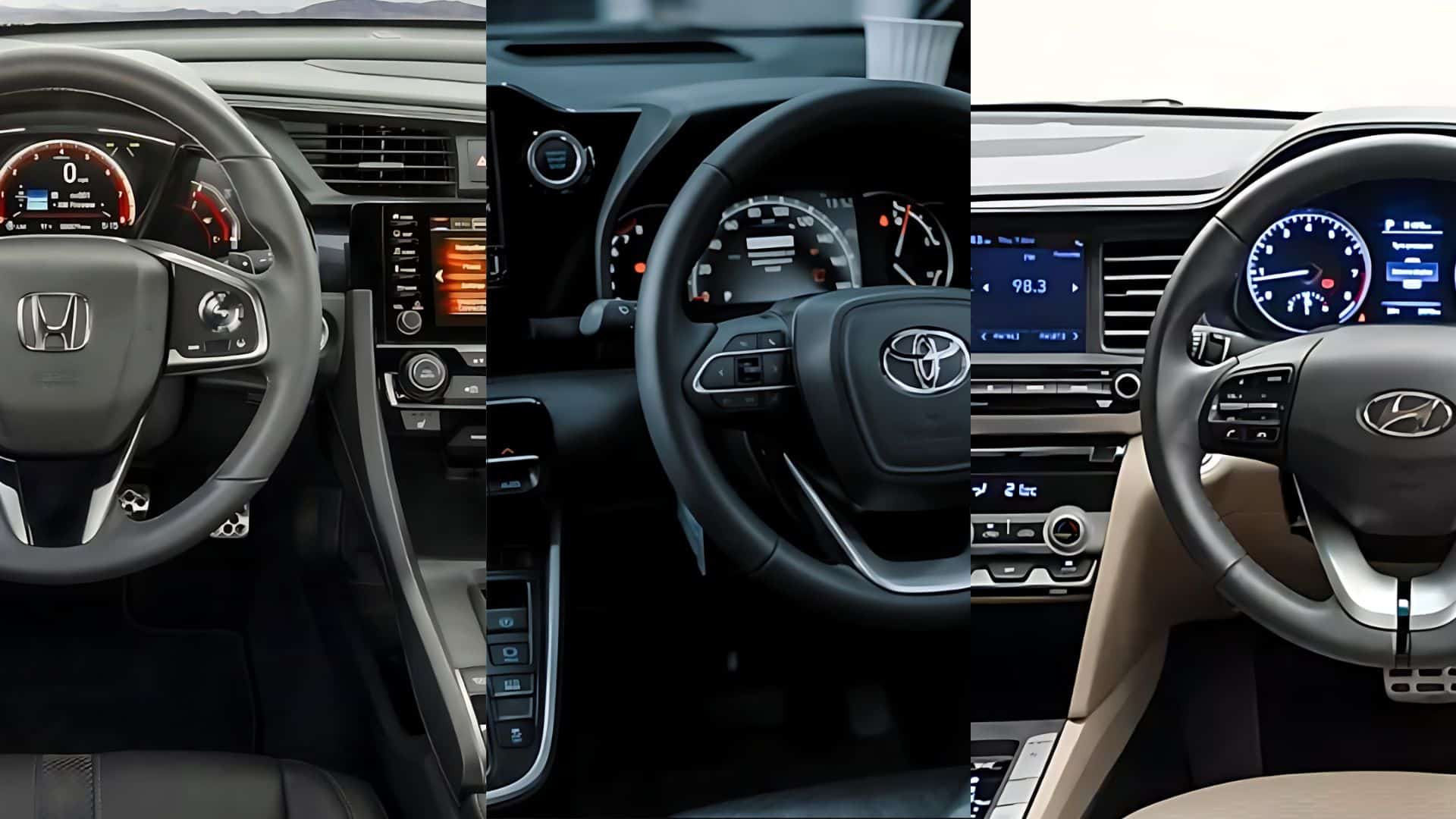
Other car makers are also adding new tech to their vehicles. Let’s see how they compare to Honda.
1. Toyota’s technology
- Toyota Safety Sense is similar to Honda Sensing®, offering features like pre-collision alerts
- Their hybrid system (used in the Prius) is very good at saving fuel, sometimes better than Honda’s hybrids
2. Hyundai’s technology
- Hyundai SmartSense offers safety features comparable to Honda Sensing®
- They’ve been quick to add new tech like digital keys and large touchscreens to their cars
How they compare with Honda’s technology
- Honda’s systems often feel more natural to use, especially their adaptive cruise control
- Toyota’s hybrid tech is top-notch, but Honda’s conventional engines often perform better
- Hyundai is adding new features quickly, but Honda’s tech tends to work more smoothly over time
While competitors are innovating swiftly, Honda maintains an edge in how well their tech works with the car’s performance. Their features tend to enhance the driving experience without feeling intrusive.
Long-Term Performance and Reliability
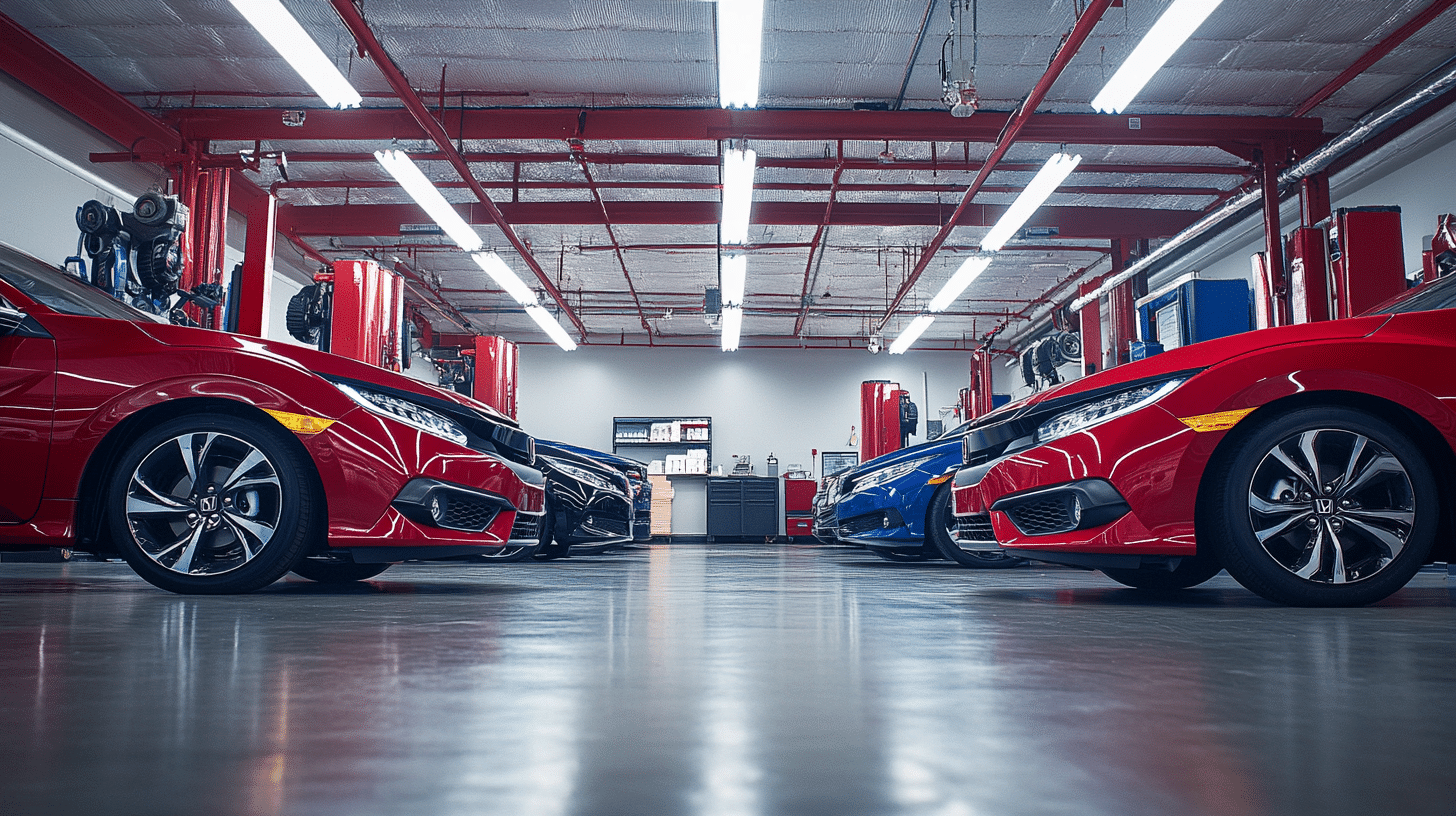
Cars should last a long time and keep running well. Here, we’ll explore how Honda cars have held up over the years.
We’ll look at how much they cost to maintain and how reliable they are compared to other brands.
1. Maintenance Costs
Honda has built a reputation for cars that don’t cost much to keep running well. This affects how the car performs over many years.
- The average yearly maintenance cost for a Honda is about $428
- This is lower than most other brands, except for Lexus
- Toyota’s average is $5,500 over ten years, slightly higher than Honda
- Ford’s average maintenance cost is $775 per year, much higher than Honda
Lower maintenance costs mean:
- More money saved over time
- Less time spent in repair shops
- Cars that keep running smoothly for longer
2. Durability and Reliability
Honda cars are known for lasting a long time without major issues:
- Many Honda engines can run for over 200,000 miles with proper care
- Honda often ranks in the top 5 for reliability in consumer reports
How Honda compares to other competitors present in the market:
- Ford: Honda typically needs fewer repairs and lasts longer
- Toyota: Both brands are very reliable, but Honda often edges out in performance over time
- Hyundai: While Hyundai has improved, Honda still leads in long-term reliability
Key points about Honda’s reliability:
- Their cars often keep running well even after many years
- Resale values tend to be higher due to their reputation for lasting
- Owners report fewer unexpected breakdowns compared to many other brands
This long-term reliability means Honda cars often keep their good performance for many years after purchase.
They tend to drive well and use fuel efficiently even as they age, which is a big plus for owners who keep their cars long.
Summing It Up
Performance Honda vehicles stand out in a crowded market. They offer a unique blend of speed, efficiency, and reliability that’s hard to beat.
From the vibrant Civic to the smooth Accord, Honda continues to impress with its well-rounded performance cars.
While competitors like Toyota, Ford, and Hyundai each have their strengths, Honda’s focus on balanced performance, fuel efficiency, and long-term reliability gives it an edge.
Lower maintenance costs and durability mean your Honda will likely perform well for years.
As we’ve seen, Honda’s commitment to innovation in safety and performance tech keeps them at the forefront of the industry.
Whether you’re seeking thrills on the open road or dependable daily driving, a performance Honda offers a compelling choice likely to satisfy for the long haul.
Frequently Asked Questions
What Makes Honda Different from Its Competitors?
Honda stands out for its balance of performance, fuel efficiency, and reliability. Their cars often have responsive handling, good acceleration, and low maintenance costs.
Honda also focuses on user-friendly technology and long-lasting engines, giving drivers a smooth experience for many years.
What Is Honda’s Biggest Competitor?
Toyota is Honda’s biggest competitor. Both Japanese brands are known for reliable, fuel-efficient cars.
They compete closely in many vehicle categories, from small cars to SUVs. Toyota often matches Honda in quality, but Honda usually has an edge in performance and handling.
How Does Honda Rank in Reliability?
Honda ranks highly in reliability. They’re often in the top 5 brands in consumer reports.
Honda cars typically need fewer repairs and last longer than many other brands. With proper care, their engines run well even after 200,000 miles.

